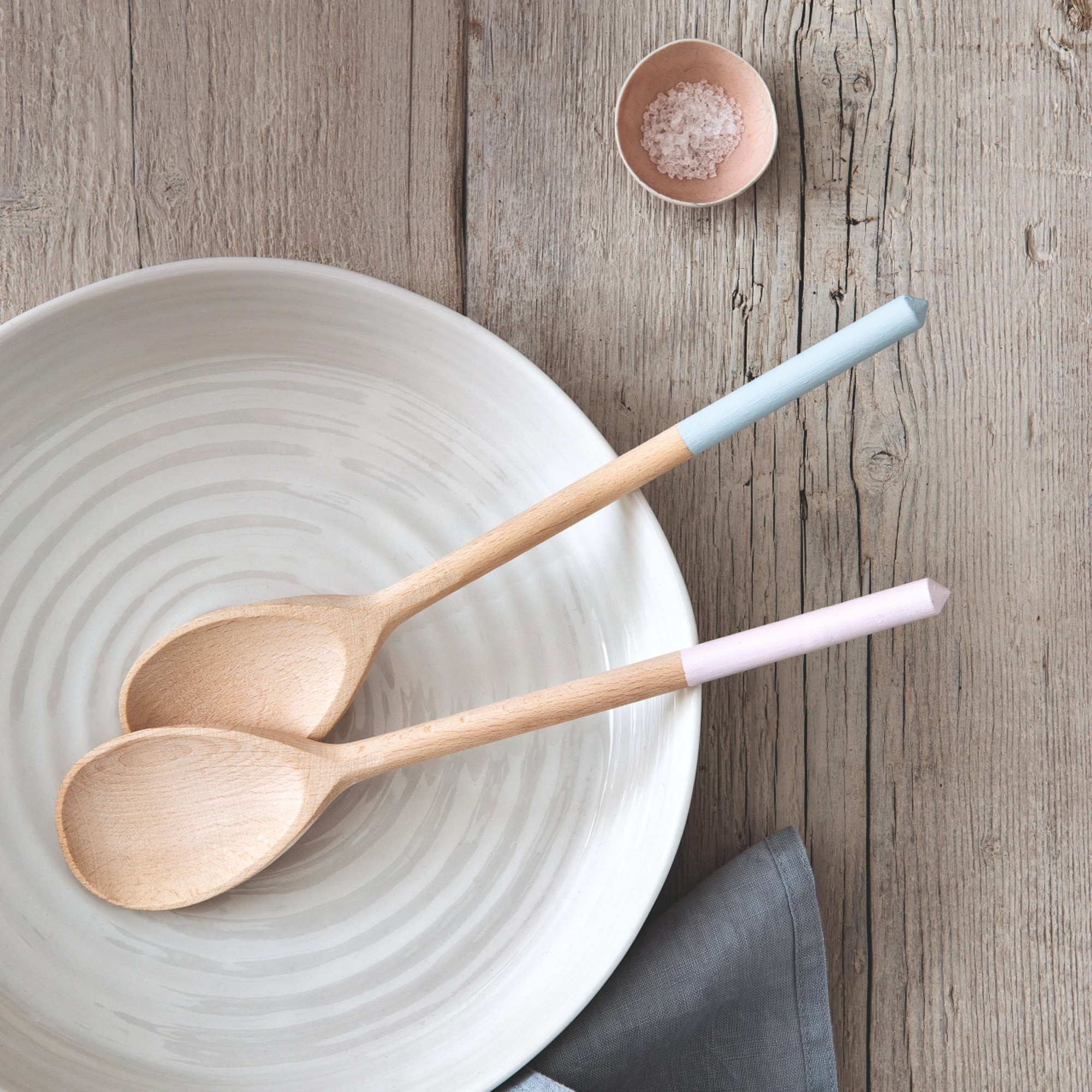
Have you ever wondered how to clean a wooden spoon? Given how often we probably use our utensils, do we ever actually consider how well we're really cleaning them? Admittedly, chucking your wooden spoons into the sink with some dishwashing soap alongside the rest of your dirty dishes sometimes isn't always enough, nor do experts advise boiling wooden spoons due to its unfavourable effect – so how exactly do you clean a wooden spoon?
We've asked cleaning experts for their top cleaning tips to ensure clean wooden spoons every single time, as well as ways to preserve and extend their longevity for everyday use in your kitchen.

How to clean a wooden spoon – expert-led tips
'Wooden spoons are a great alternative to plastic utensils and have the added bonus of not scratching your pots and pans as metal ones might. What many people don't know is that wooden spoons can be a hotbed for germs and bacteria, as they very easily absorb liquids and oils from foods, despite appearing clean,' warns Sue Caldwell, managing director at eco-friendly cleaning brand, Clean Living International.
'Cleaning wooden spoons requires a gentle and careful approach to ensure their longevity, prevent damage and maintain their natural appearance. However, the cleaning process is still pretty straightforward. Preferably, you should wash them shortly after using them,' explains Lily Cameron, cleaning supervisor at Fantastic Services. If you want to learn how to properly clean a wooden spoon, follow these expert-led tips.
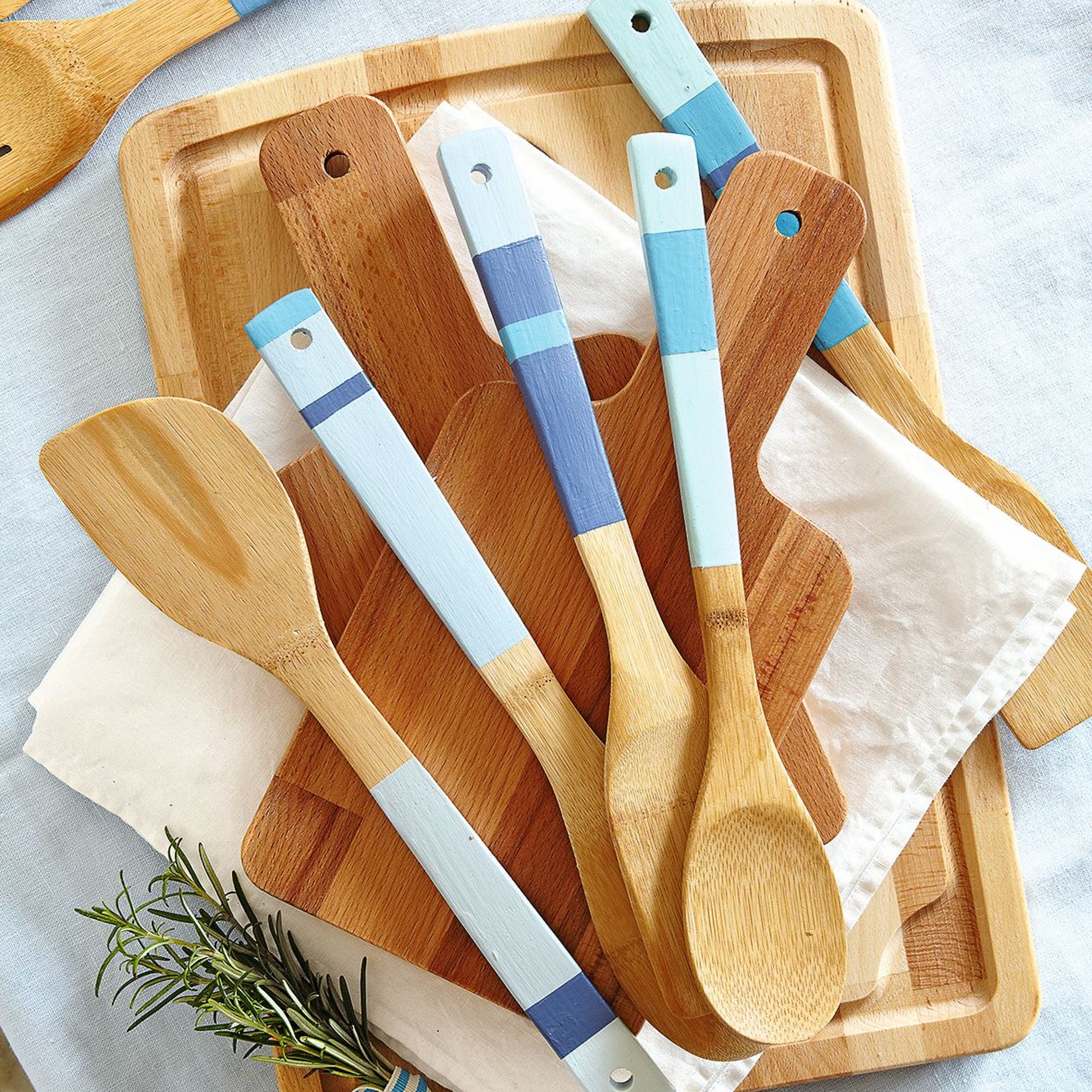
1. Prepare the supplies
'For this cleaning task, you can use mild dish soap or a specialised wooden utensil cleaner. You’ll also need a soft sponge or cloth, warm water and, optionally, white vinegar or lemon juice for sanitising,' says Lily Cameron.
2. Pre-washing
'Before starting the cleaning process, scrape off any food particles or residue from the wooden spoons using the back of a knife or your fingernails. Afterwards, rinse them under warm water to remove any remaining loose matter.'
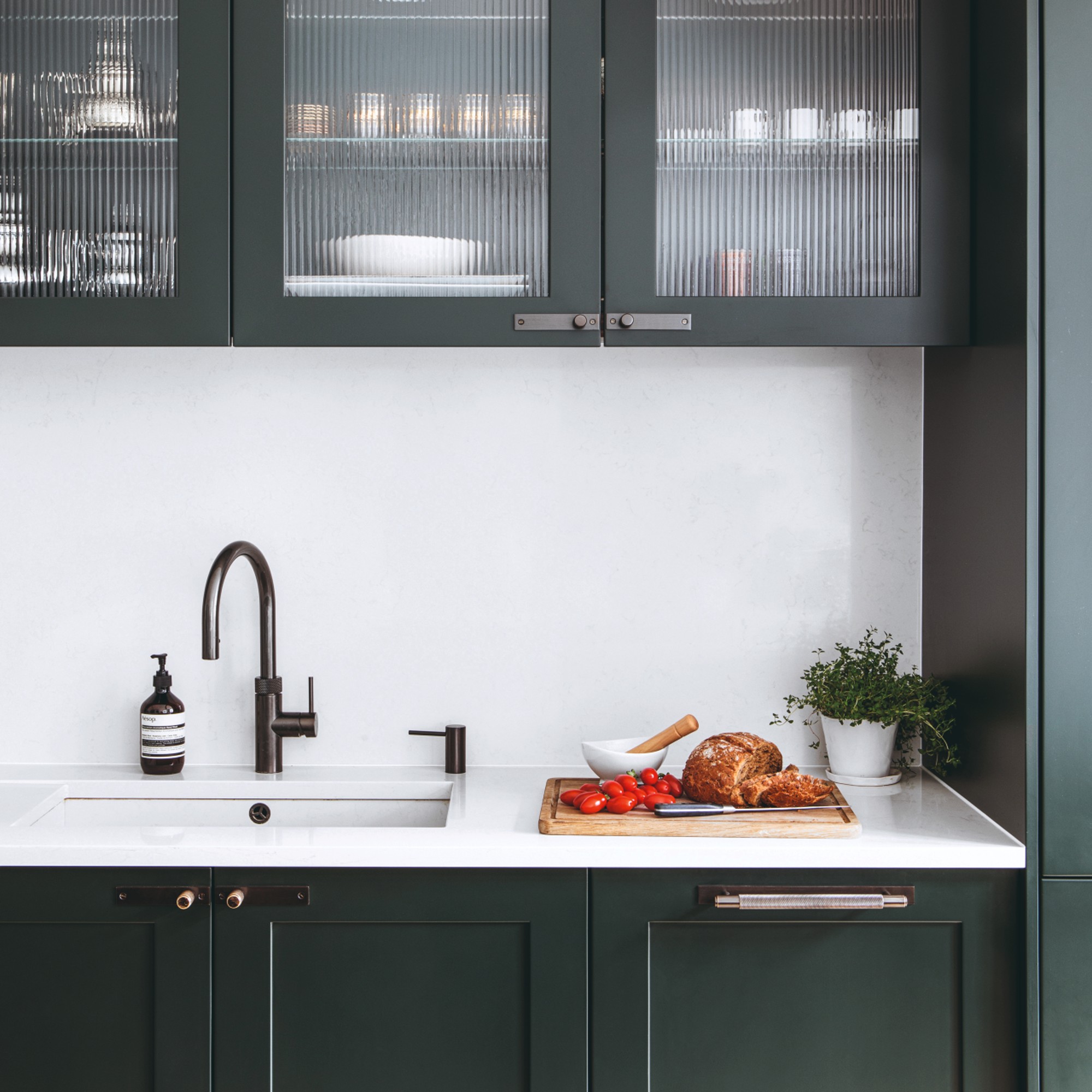
3. Cleaning
'Create a cleaning solution by mixing a small amount of mild dish soap with warm water in a container or in the sink. Gently dip the soft sponge or cloth into the soapy water and squeeze out any excess liquid.'
'Lightly scrub the wooden spoon with the damp sponge or cloth, making sure you clean all surfaces thoroughly, including the handle and the bowl of the spoon. Give special attention to any stains or stubborn residue, applying slightly more pressure if it’s necessary, but avoid excessive scrubbing, because it can damage the wood.'
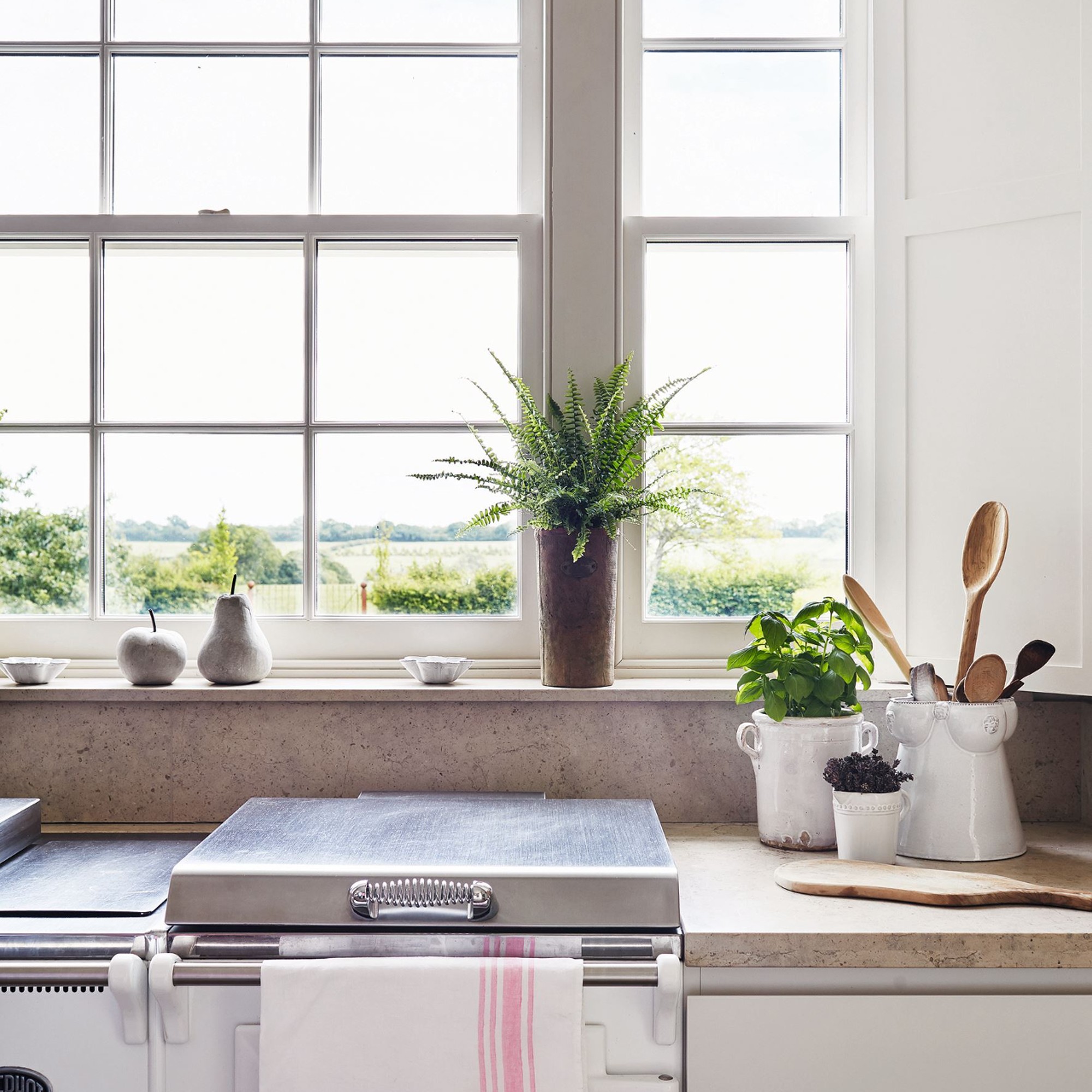
4. Rinsing
'After cleaning, rinse the wooden spoon under warm water to remove any soapy residue. Make sure you remove all traces of soap to prevent any unwanted flavours or unpleasant odours from transferring to and contaminating your food later.'
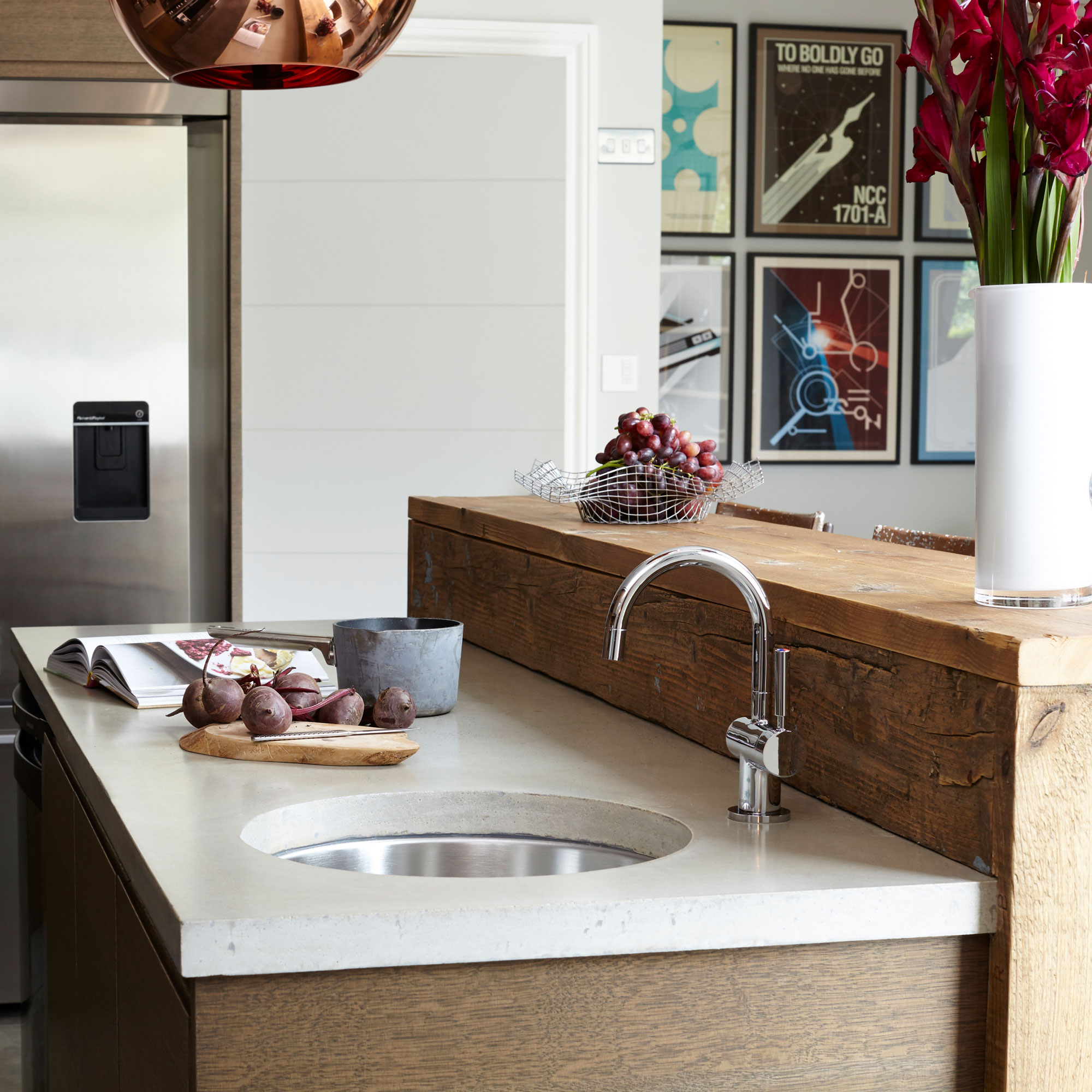
5. Drying
'Gently pat the wooden spoon with a clean, dry cloth to remove the excess moisture. Allow it to air dry completely in a well-ventilated spot. When drying wooden spoons, avoid placing them in direct sunlight or near a heat source, because it can make the wood warp or crack. Besides that, make sure both sides of the spoon are properly dried to prevent the growth of mould or bacteria.'
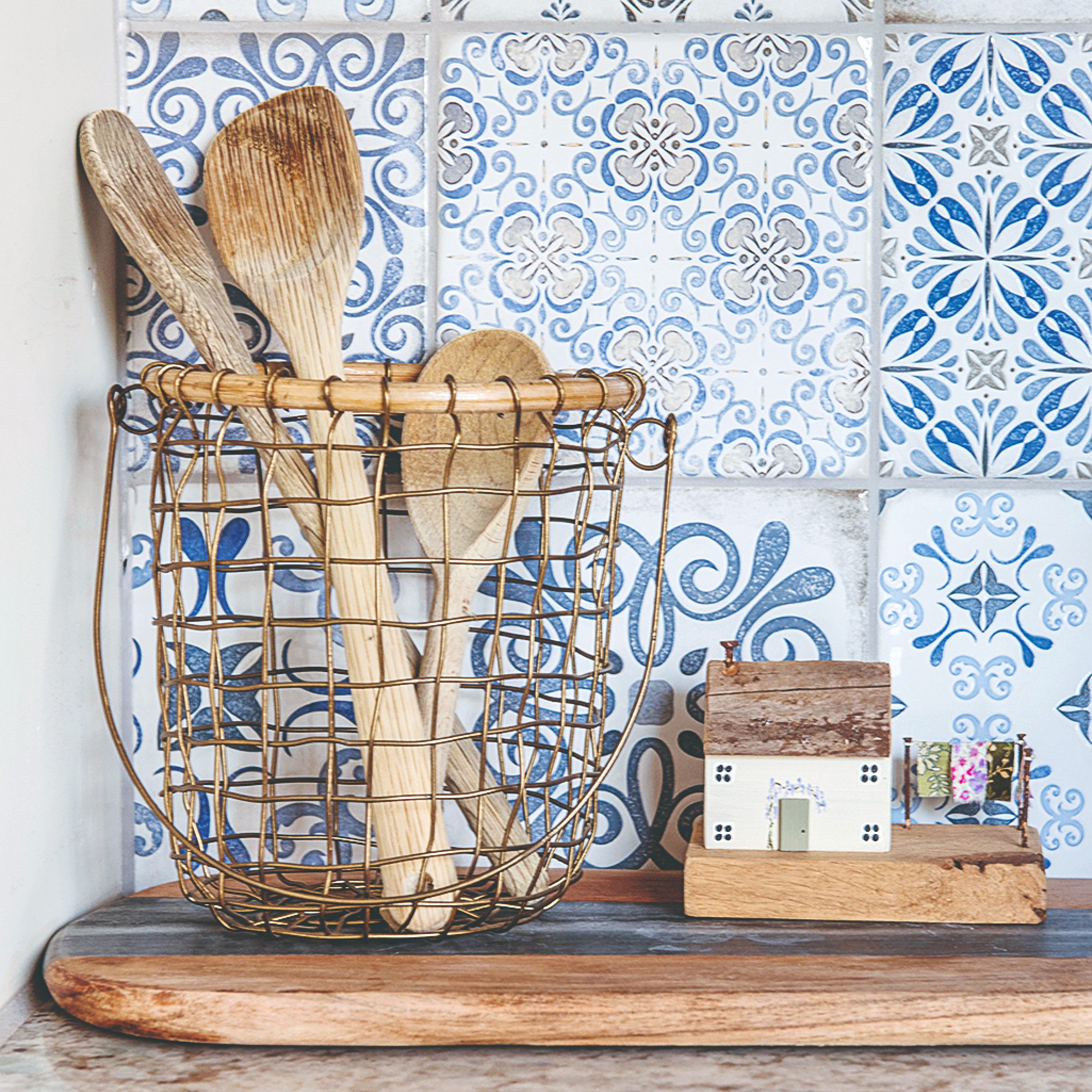
6. Optional santising
If you're looking to deep clean your wooden spoons, Sue Caldwell at Clean Living International suggests 'harnessing the power of nature, using items that you probably already have in your kitchen cupboard.'
'Baking soda and white distilled vinegar are fantastic natural cleaners – baking soda acts as a great cleaning agent as it is a mild alkali, which dissolves grime and grease, while the vinegar will neutralise odours and fight bacteria that the spoon might have absorbed.'
'Simply add equal parts of vinegar with boiling water and a teaspoon or two of baking soda, pop your spoons in, and leave to soak for fifteen to twenty minutes. We recommend doing so once a month to give them a deep clean!'
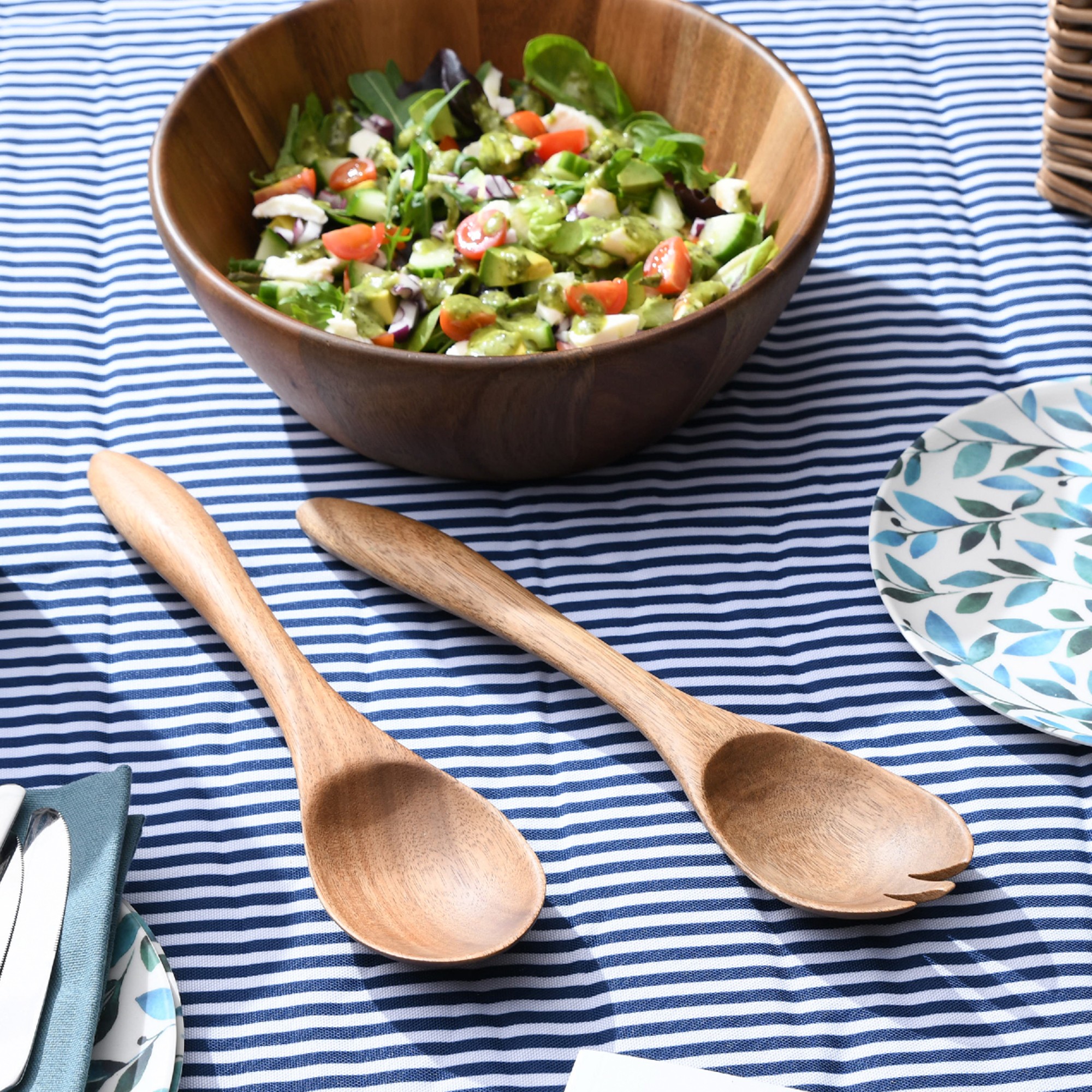
Additionally, it doesn't hurt to keep a kitchen utensil cleaner to hand after everyday use. When cleaning wooden spoons, it's important that you don't use traditional cleaning products that contain harmful chemicals, as they may be absorbed and transferred to your next meal.
Additional tips for cleaning and storing wooden spoons
1. How to store wooden spoons
'Dry and store wooden kitchen products in an upright position to minimise dirt from other surfaces and the air,' advises Joe Authbert, buying manager at ProCook. 'Placing wooden spoons upright rather than flat promotes better airflow and prevents the wood from expanding and cracking,' adds Nigel Bearman, CEO and founder of cleaning company, Daily Poppins.
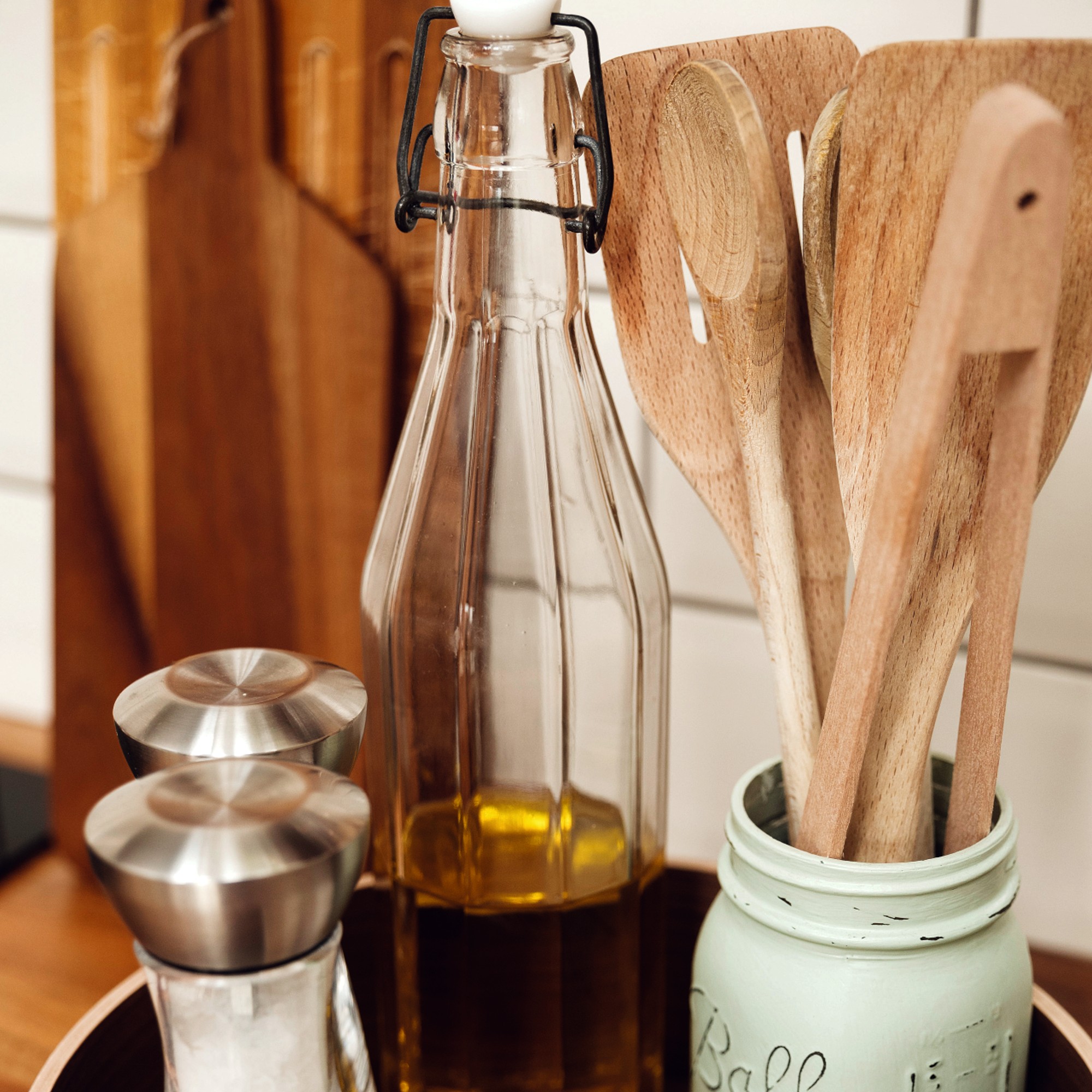
2. Regularly oil your wooden spoons
Additionally, Nigel Bearman at Daily Poppins advises regularly oiling wooden spoons. 'It is common for wooden spoons to dry out and splinter over time. Rub mineral oil or beeswax along the edges of your wooden cookware in order to preserve it and prevent cracks.'
'Oils derived from foods, such as olive oil and vegetable oil, will cause the surfaces to become sticky. In order to prevent the wood from drying out, treat your wooden spoons with oil after sanitising them with hydrogen peroxide.'
3. Avoid submerging wooden spoons in water
'Finally, don't soak wooden items and never clean them in a dishwasher, as wood easily warps when expose to heat or prolonged soaking,' warns Joe Authbert at ProCook.
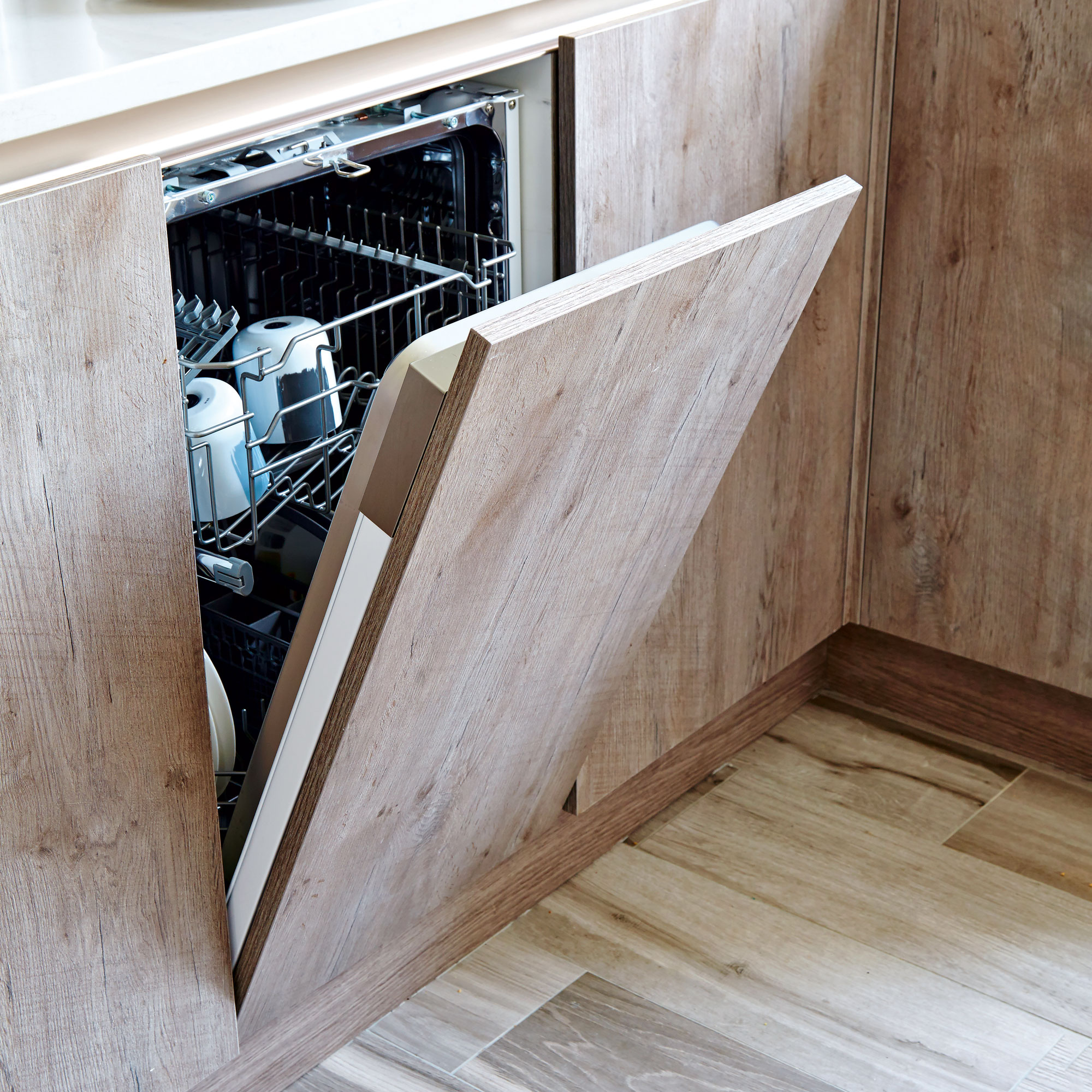
Following these measures of correctly cleaning and sanitising your wooden spoons are key to maintaining the quality and durability of your wooden spoons. So the next time you accidentally leave your wooden spoon to soak in a sink full of water after cooking, remember these expert-led tips so you don't get caught out.







